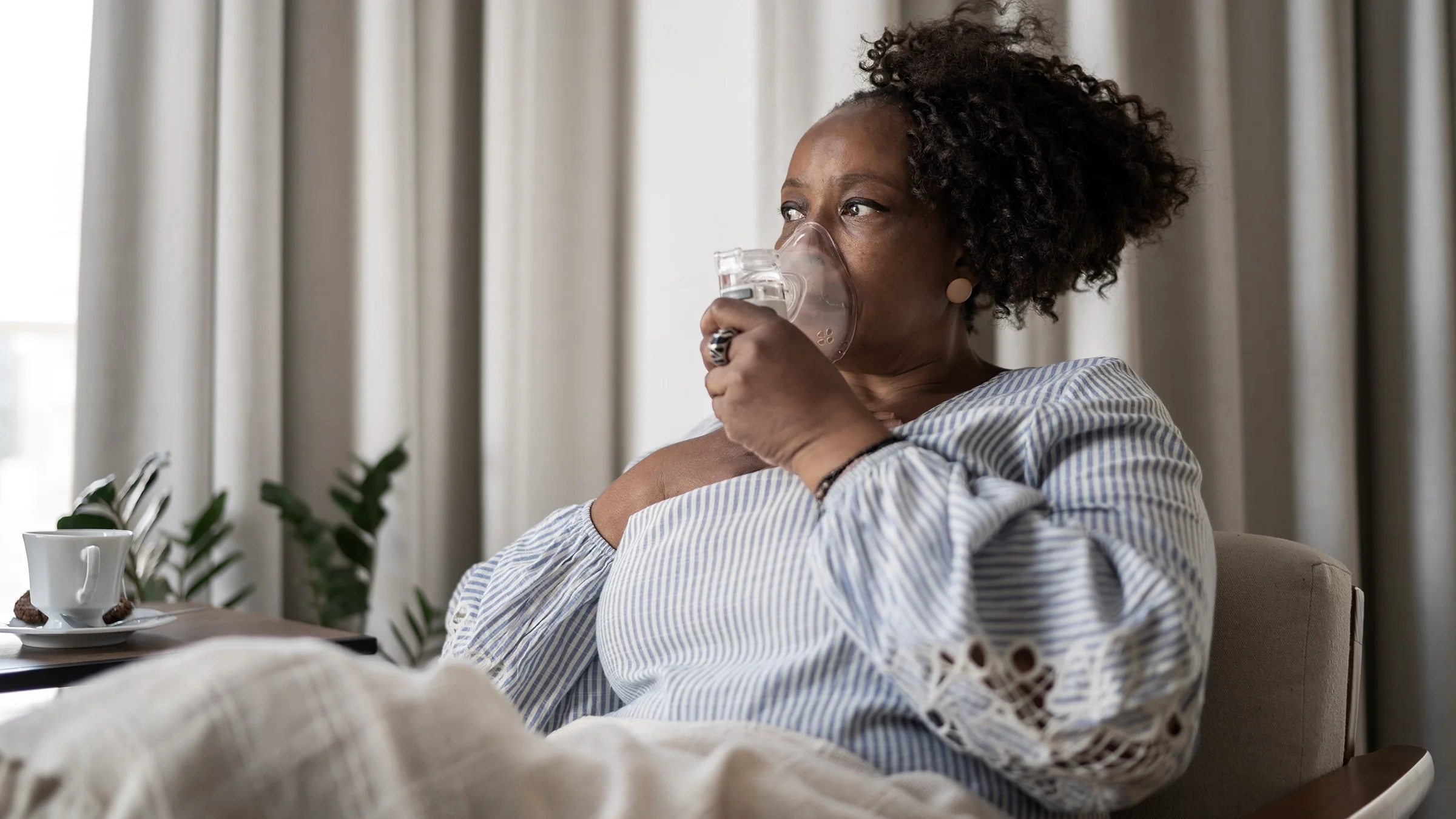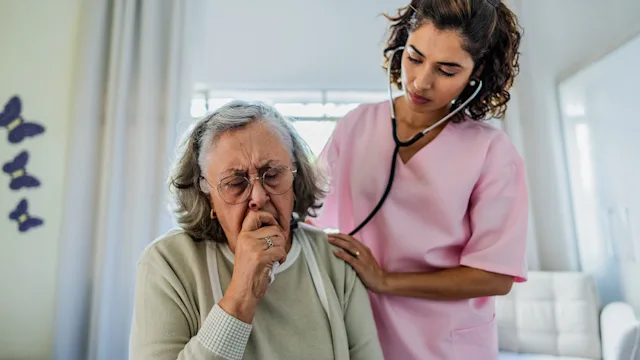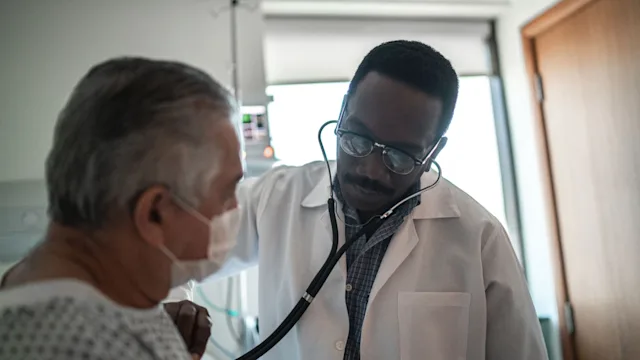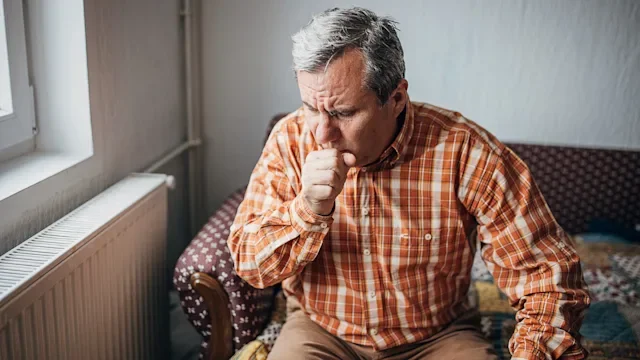Key takeaways:
Pneumonia treatment depends on what type of infection you have, how sick you are, and whether you have any chronic lung conditions.
Pneumonia that’s caused by a bacterial infection should be treated with antibiotics. But other types of pneumonia won’t get better with antibiotic treatment.
Corticosteroids, inhalers, and oxygen therapy can also be used in some cases to help treat pneumonia.
If you’ve ever been sick with pneumonia, you know that it can be a miserable experience.
Pneumonia is an infection in the lungs. It can be caused by bacteria, viruses, or even fungus. People with pneumonia often have a cough, difficulty breathing, and fever. Some cases of pneumonia can be quite mild, while others may be life-threatening.
There’s no single treatment for pneumonia that’ll work for everyone. That’s because every case of pneumonia is different. The best treatment for pneumonia depends on what’s causing pneumonia, how severe the symptoms are, and what other medical problems are affecting the lungs.
Let’s look closer at how pneumonia is treated.
Determining treatment for pneumonia
Pneumonia treatment should target the germ that’s causing the infection. A wide range of bacteria, viruses, and (rarely) fungi can cause pneumonia.
Bacteria
Bacterial pneumonia is often caused by infection with Streptococcus pneumoniae. But other bacteria can cause pneumonia too. An example is Mycoplasma pneumoniae, which can cause a milder form of pneumonia, called “walking” pneumonia.
Virus
Viral pneumonia can come from infection with many different viruses, including:
Influenza virus (flu)
Fungus
Fungal pneumonia is rare. But histoplasmosis and coccidioidomycosis (valley fever) are two kinds of fungal pneumonia.
When do you need antibiotics for a cough? Most of the time, people don’t need antibiotics to get over a cough. But it’s important to know the exceptions.
Coughing won’t stop? Not all coughs need a medical visit. Here’s how to know when to seek medical care for your cough.
What does pneumonia feel like? Here’s how one person describes what it’s like to have pneumonia.
In addition to attacking the underlying cause of the pneumonia, pneumonia treatment should help relieve symptoms and support the lungs while they recover.
How to treat pneumonia
The kind of treatment you’ll receive for pneumonia can be different from someone else’s. Your healthcare team will come up with a specific treatment plan for you. They’ll consider all of the pneumonia treatment options below.
Antibiotics
Antibiotics are helpful if your pneumonia is caused by a bacteria. You may need more than one antibiotic if you’re at high risk for severe infection or your infection is caused by antibiotic-resistant bacteria.
Antibiotics often used to treat pneumonia caused by bacteria include:
Most people with bacterial pneumonia can take an oral antibiotic at home. Be sure to take antibiotics as prescribed, even after you’re feeling better. Stopping antibiotics early increases the likelihood the infection will come back. And it increases the risk of antibiotic resistance.
Some people may need to be admitted to the hospital for antibiotics delivered through an IV.
This happens when:
Oral antibiotics haven’t cleared the infection
Oral antibiotics won't work because the infection is caused by antibiotic-resistant bacteria
Someone’s unable to take oral antibiotics down due to nausea or vomiting
Someone’s severely ill
Antivirals
Antiviral medications can be used to help treat certain types of viral pneumonia.
If you've been diagnosed with pneumonia caused by the flu, your primary care provider may recommend taking an antiviral like Tamiflu (oseltamivir). This will help reduce the length of time you're sick.
Some people with COVID pneumonia may benefit from taking Paxlovid (nirmatrelvir / ritonavir). This will reduce the risk of developing severe COVID symptoms.
But not all cases of viral pneumonia can be treated with antivirals. And not everyone with viral pneumonia needs antiviral medication.
Antifungals
If you're diagnosed with pneumonia from a fungal infection, you’ll need treatment with an antifungal medication like voriconazole or amphotericin B. Fungal infections can be challenging to diagnose and treat. People may need treatment in a hospital. Specialists like infectious disease experts often help guide treatment decisions.
Corticosteroids
Corticosteroids like prednisone and dexamethasone are sometimes used to treat pneumonia. In cases of severe pneumonia, these medications can reduce the risk of death. They may also be used when people have underlying lung conditions like asthma or chronic obstructive pulmonary disease (COPD).
Corticosteroids can have side effects such as increased blood sugar and blood pressure. They can also cause anxiety, agitation, and confusion. This is especially true when people are severely ill and require treatment in the intensive care unit (ICU).
Inhalers and nebulizers
Medications like corticosteroids can help open up the airways so that you can breathe easier. Two examples are albuterol (a beta agonist) and ipratropium (an anticholinergic).
These medications are given through inhalers or nebulizers:
An inhaler is a small, handheld device that administers medication directly to the lungs.
A nebulizer is a machine that helps deliver medication to the lungs by turning liquid into a mist that you inhale.
Not everyone who’s sick with pneumonia needs these medications. Your healthcare team can help determine if these medications are right for you.
Over-the-counter medications
Over-the-counter (OTC) pain relievers can help treat symptoms of pneumonia such as fever, headache, and chest pain.
Your healthcare team may recommend using:
Acetaminophen (Tylenol)
Ibuprofen (Advil)
These medications can help relieve aches and pains and reduce fever.
Keep in mind that children under age 12 shouldn’t use aspirin. Aspirin can cause a serious illness called Reye’s syndrome in children.
Home remedies
In addition to OTC medications, there are other things you can do at home to help aid your recovery. If you're sick with pneumonia, try the following:
Increase your fluid intake. This can help loosen mucus and make it easier to cough up phlegm.
Drink warm beverages. You can also spend time in a steamy bath or shower, or turn on a humidifier to help clear out mucus.
Avoid smoke. This means cigarette smoke, secondhand smoke, and wood smoke. All of these can further irritate your lungs while you're sick.
Get enough rest. Ask for help with preparing meals and chores until you’re feeling better. It can take weeks to fully recover from pneumonia.
Can you prevent pneumonia?
Yes, there are safe and effective vaccines that can decrease your likelihood of getting pneumonia. And if you do get sick but are up-to-date with your vaccinations, you're more likely to have a mild infection.
When people refer to the “pneumonia shot,” they're usually talking about vaccines that prevent Streptococcus pneumoniae (S. pneumoniae), the most common cause of bacterial pneumonia. Pneumococcal vaccines don't prevent every kind of pneumonia. But they do protect against infection from multiple strains of S. pneumoniae.
Other important vaccines that can reduce your chances of getting pneumonia include:
You can also help prevent pneumonia and improve your overall health by:
Washing your hands
Not smoking
Getting enough sleep
Eating well
When to seek care for pneumonia
It can take time to fully recover from pneumonia, even with treatment. A mild case of pneumonia may resolve within a week. But many people take weeks to get better after pneumonia.
You should see a healthcare professional if your symptoms suddenly worsen, or if you have severe symptoms of pneumonia such as:
Difficulty breathing
Chest pain
High fever
Heart racing
Confusion
Frequently asked questions
It depends on the type of pneumonia. If you have bacterial pneumonia, the bug can spread for about 48 hours after starting antibiotics. If you have a viral pneumonia, the virus can spread until symptoms (including fever) improve. Other types of pneumonia — like fungal or aspiration pneumonia — aren’t contagious at all.
It depends on the type of infection. For example, some strains of COVID are very contagious. However, fungal pneumonia doesn’t spread from person to person.
Yes, but not for long. If you have bacterial pneumonia, you’re contagious for about 48 hours after starting antibiotics.
It depends on the type of pneumonia. If you have bacterial pneumonia, the bug can spread for about 48 hours after starting antibiotics. If you have a viral pneumonia, the virus can spread until symptoms (including fever) improve. Other types of pneumonia — like fungal or aspiration pneumonia — aren’t contagious at all.
It depends on the type of infection. For example, some strains of COVID are very contagious. However, fungal pneumonia doesn’t spread from person to person.
Yes, but not for long. If you have bacterial pneumonia, you’re contagious for about 48 hours after starting antibiotics.
The bottom line
There’s no one standard treatment for pneumonia. That’s because pneumonia can be caused by a wide range of viruses, bacteria, and even fungi. If you have bacterial pneumonia, you’ll need treatment with an antibiotic.
But other types of pneumonia won’t get better with antibiotic treatment. Other pneumonia treatments like corticosteroids and inhaler therapy may be used. This depends on the severity of the infection and whether you have any underlying lung conditions. Vaccines against the most common causes of lung infection are the best way to prevent pneumonia.

Why trust our experts?



References
American Lung Association. (2024). How to use a nebulizer.
American Lung Association. (2025). Is pneumonia contagious?
American Lung Association. (2025). Pneumonia treatment and recovery.
Centers for Disease Control and Prevention. (2024). About histoplasmosis.
Centers for Disease Control and Prevention. (2024). About valley fever.
Centers for Disease Control and Prevention. (2025). COVID-19 treatment clinical care for outpatients.
Centers for Disease Control and Prevention. (2025). Treating flu with antiviral drugs.
DC Health. (2024). Fact sheet: Pneumonia. Center for Policy, Planning and Evaluation.
Limper, A. H., et al. (2008). An official American Thoracic Society Statement: Treatment of fungal infections in adult pulmonary and critical care patients. American Journal of Respiratory and Critical Care Medicine.
MedlinePlus. (2023). Pneumonia.
National Health Service Inform. (2025). Pneumonia.
National Heart, Lung and Blood Institute. (2022). Pneumonia: Prevention.
National Heart, Lung and Blood Institute. (2022). Pneumonia: Recovery.
Schreiber, M. P., et al. (2015). Corticosteroids and transition to delirium in patients with acute lung injury. Critical Care in Medicine.
Stern, A., et al. (2017). Is treatment with corticosteroids beneficial and safe for people with pneumonia? Cochrane Database of Systematic Reviews.
Womack, J., et al. Community-acquired pneumonia in adults: Rapid evidence review. American Family Physician.














